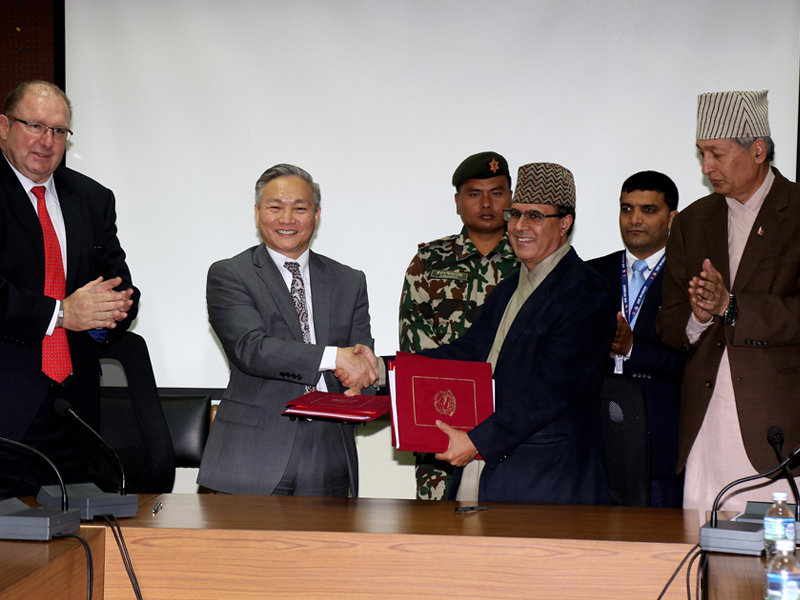Saturday 27th July 2024

Nepal Government and World Bank signed two major agreements worth USD 155.7 million on November 15, 2018.
Finance Secretary Rajan Khanal and World Bank Director for Bangladesh, Bhutan and Nepal Qimiao Fan signed the agreements in the presence of Nepal Finance Minister and World Bank Vice-President for South Asia Schafer among others senior government officials.
“With these two projects, the Government of Nepal and the World Bank will come together to ensure better livelihoods, access, trade and life opportunities for thousands of Nepalese people,” said Dr Yuba Raj Khatiwada, Nepal Finance Minister.
The amount will be utilized for:
Investment for Strategic Roads Network
The first credit worth USD 133 million will be dedicated to the Nepal’s Strategic Roads Network spread across 12, 142 km including national highways, feeder roads and other important national roads.
This amount will also fund:
“We are deepening our collaboration with the Government of Nepal through the development and sustainability of key strategic bridges, and through enhancement of food security and nutrition. These contribute greatly to Nepal’s development story-line by addressing the need for connectivity, human capital development and shared prosperity,” said Hartwig Schafer, Vice President, World Bank- South Asia Region.
Investment for Food Security
The second project will be a grant of USD 22.7 million which will add to Nepal Government’s capacity for agriculture services enhancement at decentralized levels and create diverse income opportunities for the rural poor.
The USD 22.7 million Global Agriculture and Food Security Program (GAFSP) will support the Food and Nutrition Enhancement Project aiming at improving 65,000 direct beneficiaries, out of which 65 percent are for women.
The projects aims to improve nutritional behavior and connecting it with agriculture-related and income-enhancing activity by working with smallholders and marginal farmers.
As part of the program, farmers from adjacent communities will also indirectly benefit through knowledge sharing and engagement with project-supported farmers.